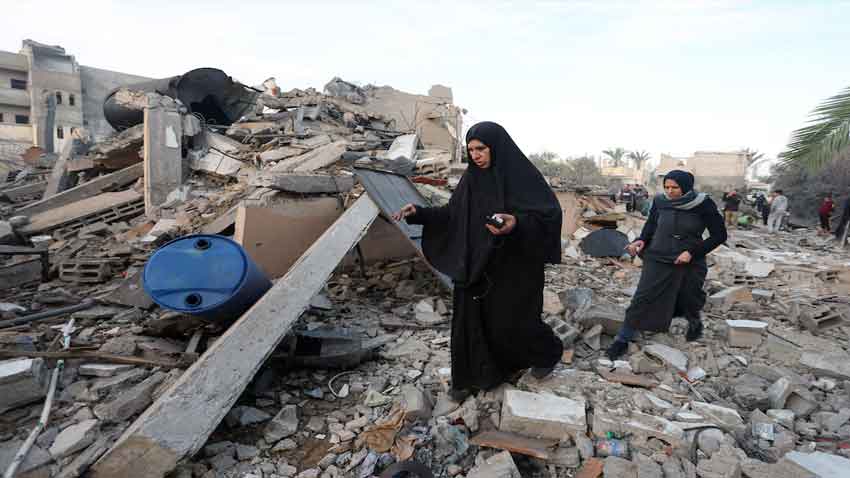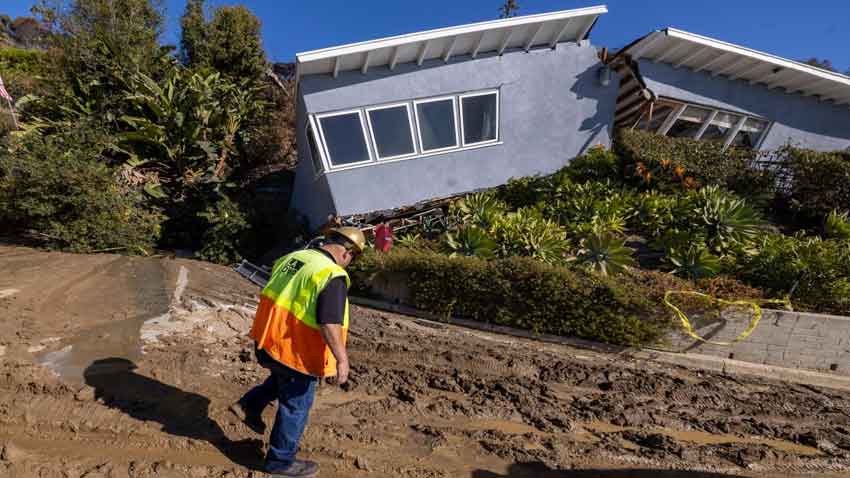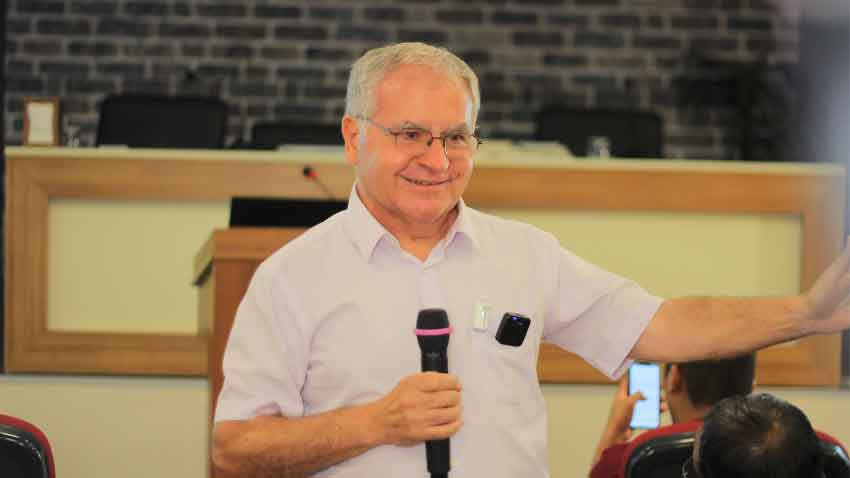
Hamas had given verbal approval to the ceasefire and hostage return proposal under negotiation in Qatar and was waiting for more information to give final written approval, a Palestinian official, who asked not to be named, told Reuters.
A Hamas official who declined to be named also said the group had not yet given a written response to the proposal.
Qatar s foreign said it will hold a press conference on Wednesday evening in Doha, where the Gaza ceasefire talks have taken place. It did not say what time it would begin.
Earlier, an Israeli official said Hamas had agreed to the proposal shared by Qatari negotiators. Israeli Prime Minister Benjamin Netanyahu s office said shortly afterward that Hamas had not yet given a response.
Officials from mediators Qatar, Egypt and the U.S. as well as Israel and Hamas said on Tuesday an agreement was closer than ever for a truce in the besieged enclave, the release of hostages held there, and the freeing of Palestinian prisoners detained in Israel.
A Palestinian official close to the talks said on Wednesday: "I am hopeful a deal can be signed tonight, latest tomorrow."
A senior Hamas official had told Reuters late on Tuesday it had not yet delivered its response because it was still waiting for Israel to submit maps showing how its forces would withdraw from Gaza.
During months of on-off talks, the warring sides have previously said they were close to a ceasefire only to hit last-minute obstacles. The broad outlines of the current deal have been in place since mid-2024.
If successful, the planned phased ceasefire could halt fighting that has left much of Gaza in ruins, displaced most of the enclave s pre-war population of 2.3 million, and has killed tens of thousands of people. The toll is still rising daily.
That in turn could ease tensions across the wider Middle East, where the war has fuelled conflict in the occupied West Bank, Lebanon, Syria, Yemen and Iraq, and raised fears of all-out war between Israel and Iran.
Israel launched its assault in Gaza after Hamas-led fighters stormed across its borders on Oct. 7, 2023, killing 1,200 people and taking more than 250 hostages, according to Israeli tallies.
Since then, Israeli forces have killed more than 46,700 Palestinians in Gaza, according to health officials in the enclave.
Palestinians were once again hoping the latest talks would deliver some relief from Israeli airstrikes and ease a deep humanitarian crisis.
"We are waiting for the ceasefire and the truce. May God complete it for us in goodness, bless us with peace, and allow us to return to our homes," said Amal Saleh, 54, a Gazan displaced by the war.
"Even if the schools are bombed, destroyed, and ruined, we just want to know that we are finally living in peace."
Under the plan, Israel would recover around 100 remaining hostages and bodies from among those captured in the October 2023 Hamas attacks that precipitated the war. In return it would free Palestinian detainees held in Israeli jails.
The latest draft is complicated and sensitive. Under its terms, the first steps would feature a six-week initial ceasefire.
The plan also includes a gradual withdrawal of Israeli forces from central Gaza and the return of displaced Palestinians to the north of the enclave.
The deal would also require Hamas to release 33 Israeli hostages along with other steps.
The draft stipulates negotiations over a second phase of the agreement to begin by the 16th day of phase one. Phase two includes the release of all remaining hostages, a permanent ceasefire and the complete withdrawal of Israeli soldiers.
Even if the warring sides agree to the deal on the table, that agreement still needs further negotiation before there is a final ceasefire and the release of all the hostages.
If it all goes smoothly, the Palestinians, Arab states and Israel still need to agree on a vision for post-war Gaza, a massive task involving security guarantees for Israel and billions of dollars in investment for rebuilding.
One unanswered question is who will run Gaza after the war.
Israel has rejected any involvement by Hamas, which ran Gaza before the war, but it has been almost equally opposed to rule by the Palestinian Authority, the body set up under the Oslo interim peace accords three decades ago that has limited governing power in the West Bank.
Palestinian Prime Minister Mohammad Mustafa said on Wednesday that the Palestinian Authority must be the sole governing power in Gaza after the war.
ISRAELI ATTACKS
Despite the talks on a ceasefire, the Israeli military, the Shin Bet internal intelligence agency and the air force attacked about 50 targets throughout Gaza over the last 24 hours, Shin Bet and the military said in a statement on Wednesday.
Israeli strikes killed at least 18 Palestinians across the enclave. Those included seven people who were in a school sheltering displaced families in Gaza City, and six others killed in separate airstrikes on houses in Deir Al-Balah, Bureij camp and Rafah, medics said. An Israeli airstrike on a vehicle in Nuseirat camp in central killed a further five, medics said.
Families of hostages in Israel were caught between hope and despair.
"We can t miss this moment. This is the last moment; we can save them," said Hadas Calderon, whose husband Ofer and children Sahar and Erez were abducted.
Israel says 98 hostages are being held in Gaza, about half of whom are believed to be alive. They include Israelis and non-Israelis. Of the total, 94 were seized in the Oct. 7, 2023 attack on Israel and four have been held in Gaza since 2014.




